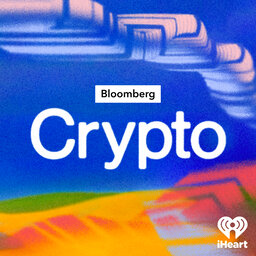Solana Is Trying to Break Its Ties With Bankrupt FTX
Crypto exchange FTX’s November 2022 collapse was one of the most spectacular and swift downfalls in the history of crypto. Now, as the bankruptcy dust begins to settle, investors and others wonder what will happen to crypto startups closely tied to the former exchange.
Solana is an example. FTX’s former CEO Sam Bankmam-Fried was a champion of the blockchain network. He publicly appeared with one of its co-founders at various conferences and industry talks.
And FTX and Alameda bought nearly $580 million dollars worth of Solana's native token, - SOL - The company also supported various projects that operated on the Solana blockchain.
Now FTX’s former CEO faces eight criminal counts including fraud. The collapsed exchange is struggling to repay its creditors. So: where does that leave Solana?
Bloomberg’s Hannah Miller has been reporting on this and joins the episode.
Subscribe to the Bloomberg Crypto Newsletter at https://bloom.bg/cryptonewsletter
 Bloomberg Crypto
Bloomberg Crypto


